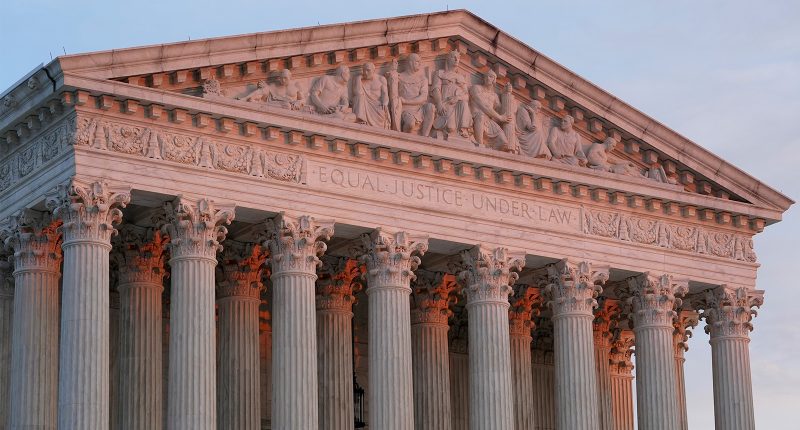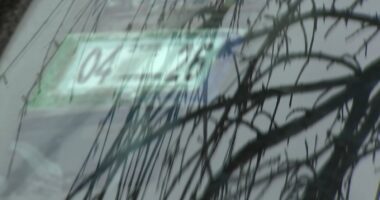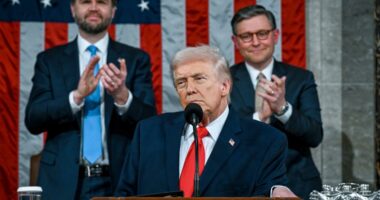Share this @internewscast.com
WASHINGTON — The Supreme Court on Monday permitted the Trump administration to remove legal protections for 350,000 Venezuelans, putting them at risk of deportation.
The court’s decision, with only one justice dissenting, pauses a federal judge’s ruling in San Francisco that had maintained Temporary Protected Status for these Venezuelans, which would have expired in the prior month. The justices did not offer an explanation, a typical approach for emergency appeals.
This status enables individuals already in the U.S. to reside and work legally when their home countries are considered unsafe due to emergencies like natural disasters or civil conflict.
A federal appeals court had earlier rejected the administration’s request to put the order on hold while the lawsuit continues.
The case is the latest in a string of emergency appeals President Donald Trump’s administration has made to the Supreme Court, many of them related to immigration. Last week, the government asked the court to allow it to end humanitarian parole for hundreds of thousands of immigrants from Cuba, Haiti, Nicaragua and Venezuela, setting them up for potential deportation as well.
RELATED: Supreme Court maintains temporary block on Alien Enemies Act deportations
The high court also has been involved in legal battles over Trump’s efforts to swiftly deport Venezuelans accused of being gang members to a prison in El Salvador under an 18th century wartime law called the Alien Enemies Act.
The administration has moved aggressively to withdraw various protections that have allowed immigrants to remain in the country, including ending the temporary protected status for a total of 600,000 Venezuelans and 500,000 Haitians. That status is granted in 18-month increments.
The protections had been set to expire April 7, but U.S. District Judge Edward Chen ordered a pause on those plans. He found that the expiration threatened to severely disrupt the lives of hundreds of thousands of people and could cost billions in lost economic activity.
Chen, who was appointed to the bench by Democratic President Barack Obama, found the government hadn’t shown any harm caused by keeping the program alive.
But Solicitor General D. John Sauer wrote on behalf of the administration that Chen’s order impermissibly interferes with the administration’s power over immigration and foreign affairs.
In addition, Sauer told the justices, people affected by ending the protected status might have other legal options to try to remain in the country because the “decision to terminate TPS is not equivalent to a final removal order.”
Congress created TPS in 1990 to prevent deportations to countries suffering from natural disasters or civil strife.
Justice Ketanji Brown Jackson said she would have rejected the administration’s emergency appeal.
The video in the player above is from an earlier report.
Copyright © 2025 by The Associated Press. All Rights Reserved.

















